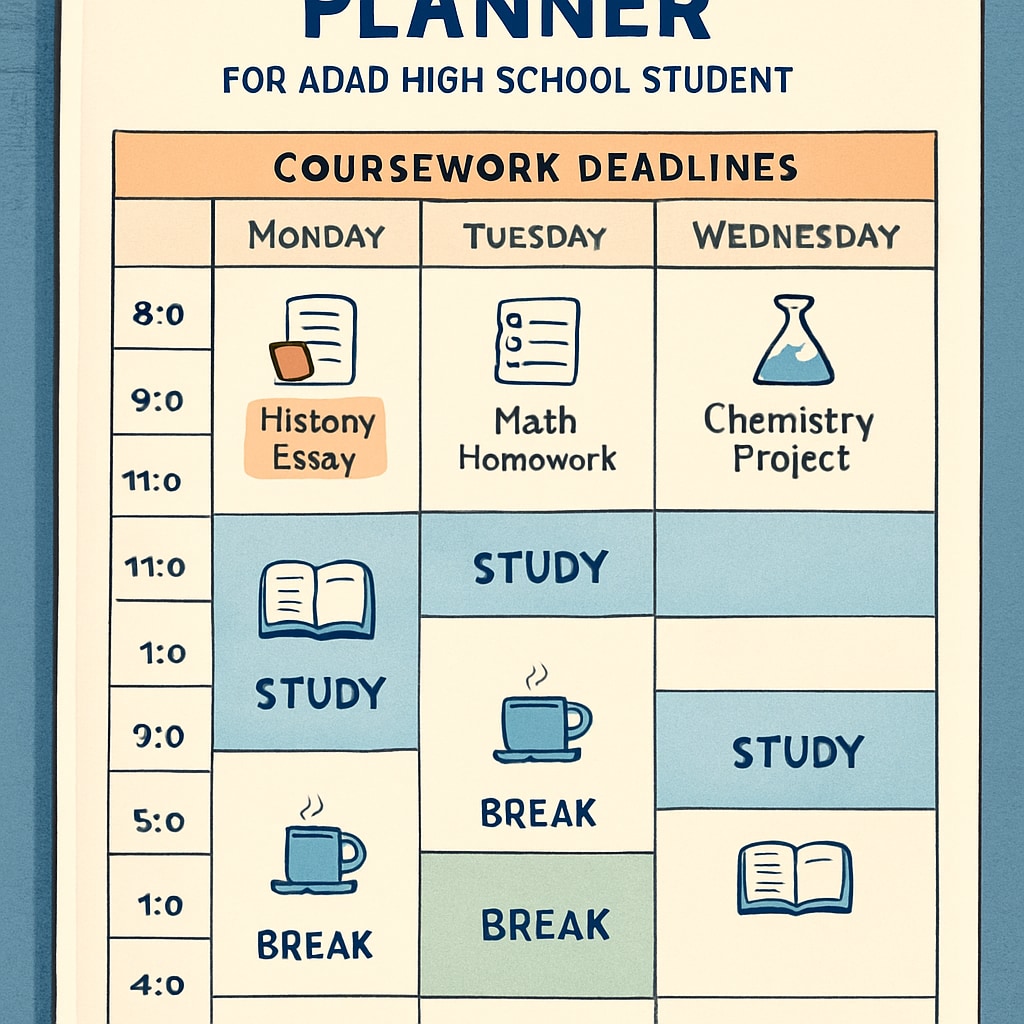Facing high school credit shortages can be overwhelming, particularly for students with ADHD who often experience challenges with focus and organization. However, with the right strategies, tools, and support, academic progress and graduation goals can become attainable. This guide explores proven methods to help ADHD students effectively recover lost credits, develop personalized learning plans, and rebuild confidence in their academic journey.
Understanding the Problem: ADHD and Academic Challenges
ADHD (Attention-Deficit/Hyperactivity Disorder) often impacts executive functioning skills, including organization, time management, and sustained focus. These challenges can lead to missed assignments, incomplete coursework, and ultimately, credit deficiencies. Recognizing the root causes of academic struggles is the first step toward creating actionable solutions.
For example, ADHD students may benefit from structured environments and tools like planners or apps that support task prioritization. Parents and educators can also play a vital role by providing consistent encouragement and adapting learning environments to reduce distractions.

How to Recover High School Credits Effectively
Recovering high school credits requires a strategic approach tailored to individual needs. Here are some key steps to consider:
- Consult with school counselors: Schedule a meeting to discuss available credit recovery programs, summer courses, or online classes that align with your graduation requirements.
- Prioritize essential courses: Focus on core subjects required for graduation, such as math, science, English, and history.
- Explore online learning platforms: Many schools offer access to virtual classrooms or accredited platforms where students can complete coursework at their own pace.
- Consider alternative pathways: Some states allow credit recovery through community service, independent study, or competency-based assessments.
In addition to these solutions, ADHD-friendly tools like timers, visual schedules, and noise-canceling headphones can help create a more productive study environment. For more information on ADHD management techniques, visit ADDitude Magazine.
Creating a Personalized Learning Plan
A personalized learning plan is essential for ADHD students to stay organized and motivated throughout the credit recovery process. Key elements to include are:
- Set realistic goals: Break down coursework into smaller, manageable tasks with clear deadlines.
- Incorporate breaks: Use the Pomodoro Technique to work in focused intervals, followed by short breaks to recharge.
- Track progress: Use tools like checklists or apps to monitor completed assignments and remaining credits.
- Leverage strengths: Identify areas of interest or subjects where the student excels and integrate them into the plan to build confidence.
Additionally, collaborating with teachers to adjust assignments or deadlines can make a substantial difference in managing ADHD-related challenges.

Time Management Tips for ADHD Students
Effective time management is crucial for catching up on credits without feeling overwhelmed. Here are practical tips designed with ADHD in mind:
- Establish routines: Consistent routines help reduce decision fatigue and improve focus.
- Use alarms and reminders: Set notifications for study sessions, deadlines, and exams to stay on track.
- Minimize distractions: Create a quiet workspace or use tools like noise-canceling headphones to block out disruptions.
- Reward progress: Celebrate milestones to maintain motivation and a positive mindset.
These strategies not only support credit recovery but also foster long-term academic success. For additional resources on ADHD and time management, explore CHADD, a leading organization for ADHD education and advocacy.
Communicating with Teachers and Parents
Open communication is vital for creating a supportive network. ADHD students should feel comfortable discussing their needs and progress with teachers and parents to ensure alignment on academic goals.
For example:
- Request accommodations: Ask for extended deadlines or modified assignments if needed.
- Share updates: Regularly inform teachers and parents about completed tasks and upcoming priorities.
- Seek feedback: Use constructive criticism to refine study habits and improve performance.
By fostering collaboration and understanding, ADHD students can overcome credit deficiencies and thrive academically.
In conclusion, high school credit recovery for ADHD students is achievable with the right mix of strategies, tools, and support. By leveraging school resources, creating personalized plans, and implementing effective time management techniques, students can regain control and achieve their graduation goals.


